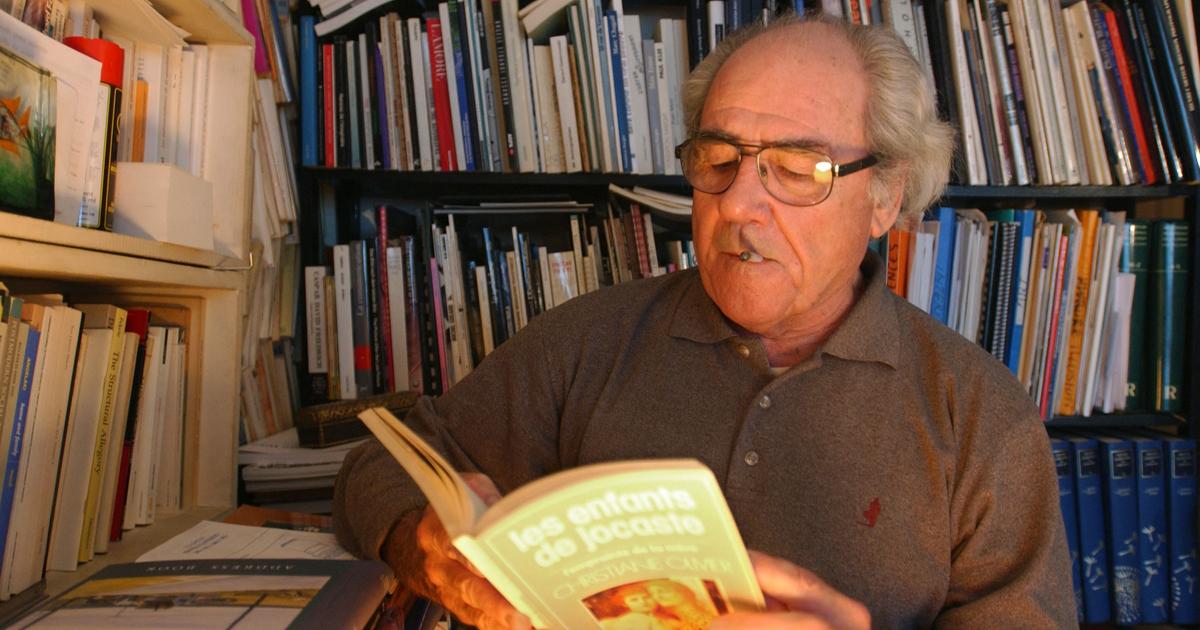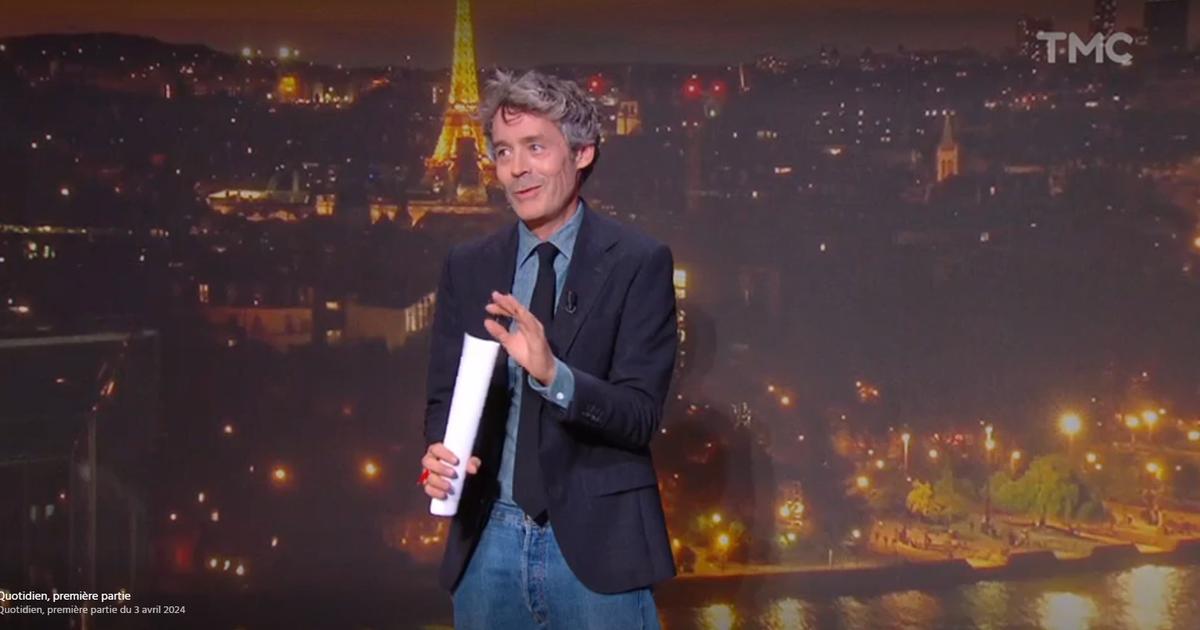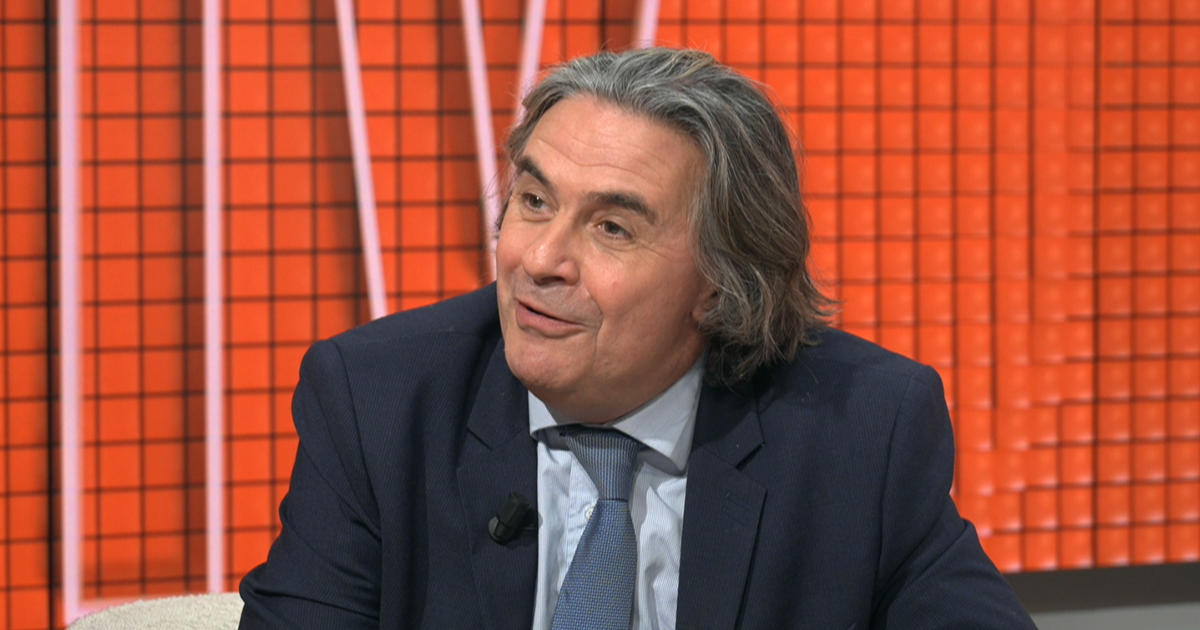Journalists, objectivity is dead. Reporters, editors, media critics and academics have been asking for a prayer for his soul in American newspapers, magazines and universities for some time. They are not all: there are those who believe that the news of that death is, like that of Mark Twain, simply exaggerated. The debate is not new, but it is so alive in this polarized society that lately it seems so.
In a trench of the so-called "wars of objectivity" are those who argue that the time has come to retire a centuries-old concept defined (as an impossibility to aspire to) by the theorist of journalism Walter Lippmann in his classic Liberty and the News (1920). In it he described a time strikingly similar to our own, in which "people no longer react to truths, but to opinions." Lippmann asked reporters not to serve any cause "no matter how good" and proposed applying scientific methods to professionalize the media, until then transparently partisan. The proposal made such a fortune that the ideal of objectivity – which, according to the Merriam-Webster dictionary, consists of "expressing oneself from facts without the distortion of personal feelings, prejudices or interpretations" – was installed in the center of American newsrooms.
More information
Is everything relative? The New Realists, a group of philosophers, say no
Among the defenders of this remain the former director of The Washington Post Marty Baron or the editor of The New York Times, A. G. Sulzberger. "There will be no worthwhile future if our profession abandons independence [...], [sum of] fairness, impartiality and (to use perhaps the most tense and discussed word in journalism) objectivity," Sulzberger wrote two weeks ago in the Columbia Journalism Review, a forum that has focused much of the conversation. His long and documented article also served to defend his newspaper. An institution, like the others, in full question.
Critics of this vision of the heir to one of the most powerful families in the media argue that objectivity is an ideal set too many years ago by a handful of wealthy white men like him and that in an increasingly diverse society (and newsrooms) it only serves to perpetuate them at the top. They also believe that we live in extraordinary times that require extraordinary measures. Misinformation is rampant; To survive, cable television has blurred the boundaries between facts and opinions; The tyranny of the click confuses everything, and some politicians attack the media accusing them of "socialist propaganda" and of engaging in the business of fake news. Faced with such a panorama, it makes no sense, they say, to continue pretending that objectivity is sought in urgent matters such as racism, women's rights and LGTBI groups or climate change, issues in which only one of the two points of view aligns with another even more urgent ideal: the defense of democracy. To pretend that the media (or the journalist) does not have a point of view on these issues is not only absurd, these voices add, but also dangerous, because they tilt information towards bothsidesism, a concept popularized, writes Sulzberger, by the theorist and consummate polemicist Jay Rosen.
"The problem [of always looking for both versions] comes when you live in a country in which one of the parties [the Republican] decided long ago to flood the public square with false statements, lies and stupidities," Rosen, an academic at New York University (NYU), recently explained to EL PAÍS in an interview by Zoom. According to this reasoning, these politicians take advantage of the fact that the traditional media are obliged to give voice to "the other side" to disseminate their extreme speeches.
This instruction manual of political discourse, born in the United States, has long since permeated the agendas of certain illiberal European leaders and finds its perfect breeding ground in lazy practices such as so-called "statement journalism" or in what Sulzberger calls "journalism at the limit of the delivery time": "Inserting a quote from each party is a quick and easy way to appear fair."
Then-US President Donald Trump holds a copy of 'The Washington Post' that reads "Trump acquitted", on February 6, 2020.Jabin Botsford (The Washington Post/Getty Images)
A report from Arizona State University came in January to arm Rosen and the rest of those who believe the old ideal was fine while it lasted. Its promoters, Leonard Downie Jr., the director who succeeded the legendary Ben Bradlee at the helm of the Post, and Andrew Heyward, former president of CBS News, interviewed 75 influential figures in the sector, who strongly agreed that "truth-seeking media must go beyond whatever 'objectivity' came to mean to produce news that inspires confidence." The quotation marks are from the Post op-ed in which Downie Jr. shared the study's findings, citing opinions such as that of San Francisco Chronicle editor Emilio Garcia-Ruiz ("Objectivity must end"), or that of Kathleen Carroll, former executive director of the AP. "Objective, by what standard?" he asked, "that standard seems to be white, enlightened and quite wealthy..., when people don't recognize themselves in media coverage, it's because they don't fall into that group." Pulled by that chorus of voices, Downie Jr. concluded that he had the impression of being "at the beginning of a generational change" in American journalism, an ecosystem whose power of influence in the rest of the world remains, despite everything, unbeatable.
The 'Trump effect'
Baron, another former Post editor (formerly of The Boston Globe, where he led the team of reporters that uncovered Church abuse in a work immortalized by the Oscar-winning Spotlight), responded on the same pages with an article titled "We want objective judges and doctors. Why not journalists too?' "Objectivity is not always achieved. The failure to achieve those standards does not eliminate their importance," he continued. "It doesn't make them outdated. It makes them more necessary. And it requires us to apply them more consistently and enforce them more firmly." In a text that began by admitting that his is a position "terribly unpopular in the profession", Baron also said: "To those who ask that the media be explicitly pro-democratic I would say: all the newspapers in which I have worked were [...]. How could they have missed that detail?"
Also on his side is David Greenberg, a historian of journalism at Rutgers University and author in the spring 2021 issue of Liberties magazine of an extensive defense of objectivity, as "the relentless attempt to correct subjectivity and, therefore, approach what people of diverse views may agree is truth." In an interview, Greenberg recalled last week that there has always been a place for journalism that "takes sides in left-wing magazines or publications that talk about the experience of being black, gay or Jewish." "Nobody says that this way of telling the world from a certain agenda should disappear. They are two models that have been living together for decades: what we defend is that institutions such as The New York Timesor the Associated Press continue to be those places to go to obtain reliable and accurate information on news events, before moving on to the political debate about the implications of those events. "
Perhaps the one thing both sides agree on is what makes all of this more than just the journalistic version of a discussion about angel sex: Donald Trump. The dean of the prestigious Newmark School of the City University of New York (CUNY), the Argentine Graciela Mochkofsky, explained Tuesday in a telephone conversation that Trump's four years in the White House blew up the instruction manual of the traditional media, which were slow to react to the fact that he lied so blatantly. The discussion about objectivity takes on greater relevance, according to the journalist, given that a new fight between Trump and Biden is looming. Will the traditional media give the two versions when reporting on the former president and his followers, who continue to believe the hoax that the Democrats stole the election in 2020? Will they tell anything that could affect Biden's aspirations knowing that it will off their readers and benefit Trump, a president who has proven dangerous to democracy and the ideals they espouse?
The problem of the two versions comes when one of the two parties decides to flood us with lies."
Jay Rosen, theorist
Mochkofsky also clarified that these are questions that are not even raised in decidedly partisan environments like Fox News. It was again demonstrated with the lawsuit filed by the company of electoral counting machines Dominion, which the chain of Rupert Murdoch, accused of spreading harmful hoaxes about the 2020 elections, resolved with a payment to avoid the trial of 787.5 million dollars. What emerged from the case summary made it clear that its journalists did not believe the lies they were telling about the alleged 2020 election theft, but that they simply could not contradict their audience or, therefore, harm the business. (In a Spanish key, and saving the distances, the episode recalls the phrase of the presenter Antonio García Ferreras collected in an audio of Commissioner Villarejo about an alleged corruption scandal that affected Pablo Iglesias, then general secretary of Podemos: "I go with it, but this is very delicate and it is too crude. It's too crude.")
CNN's decision to recently air a controversial interview in which a group of constituents asked questions (and laughed thanks) to Trump on a network whose owners say he has embarked on a journey from the left to the center also seemed a matter of business. The occasion allowed the former president to release for more than an hour a battery of his lies with hardly any filter or opposition, and again put on the table the question of whether the media have learned the lesson of the coverage of the campaign that took him in 2016 to the White House.
The required impartiality
Trans journalist Lewis Raven Wallace fears not. To continue with the war analogy, it could be said that his dismissal from public radio is to the outbreak of the wars of objectivity what the assassination in Sarajevo of Archduke Franz Ferdinand at the beginning of World War I. The reason for that dismissal was the publication on his blog in 2017, shortly after Trump's inauguration, of a text entitled "Objectivity is dead, and for me it is good." The text questioned the insistence of the serious press on that "noble, but unattainable" aspiration at a time when the president "believes in 'alternative facts' and thrives on lies, including the lie of white racial superiority." The program for which he worked considered that he could not continue in his position because of the impartiality he demands of his journalists.
"I know what I'm talking about," Wallace clarified in an interview with EL PAÍS, "I belong to a group marginalized by the media, which has suffered decades of poor coverage in the name of objectivity. Giving voice to both sides on the issue of trans rights provides a huge loudspeaker for transphobic attitudes. The public knew nothing not so long ago about this matter and now they are enlightening themselves with extreme and deliberately misinformed views." An example of that, he added, is The New York Times, recently criticized for its coverage of the reality of trans people in an open letter signed by a thousand of its collaborators.
The New York Times building, in Manhattan, on December 21, 2022. AMIR HAMJA /(New York Times / ContactPhoto)
Wallace went further in his book The View from Somewhere, for which he started from another concept harvested from Rosen (who in turn took it from the philosopher Thomas Nagel): the "view from nowhere". In the essay, Wallace reviews the history of the idea and dwells on extreme examples, such as a Los Angeles Times article whose headline was asked in 1990: 'Can women journalists objectively report on abortion?' "There are still headlines," the journalist clarified, "that consider that a homosexual cannot cover the LGTBI community or that a black person is not the right person to write about racial issues."
"The problem," Rosen says, "is that the media have been trying to diversify their newsrooms for some time: they hire Hispanics, Asians, African-Americans, gays or trans people. And once inside they ask them to leave their perspectives at the door. They want to include them, but they don't want to give up objectivity, which is also a system of social control, which has worked for them, because when a young generation arrives at a newsroom, they go out of their way to look like their elders."
On the idea of diversity revolved another article that marked a milestone in the discussion. It was written in 2020 by Wesley Lowery in The New York Times. It was titled 'A reckoning with objectivity' and denounced that the "views and inclinations of the white mind are those that are considered neutral." These ideas, he added, "are built on a pyramid of subjective decision processes: what stories and how intensively they are covered (in other words: what would have become of Watergate, the founding myth of contemporary American journalism, without The Washington Post's insistence on following the story?), what sources are sought and included, what information is underlined and which is minimized. Emmanuel Felton, the Post's black "ethnicity reporter," believes that's what makes this "decidedly human work." "If you send an African-American and a white man to tell the same story in a black neighborhood, they'll come back with two very different versions. The challenge is to admit that's not necessarily negative."
Jeff Jarvis, a digital revolution theorist and professor at CUNY, believes that what is contained in this prevention of not letting someone "too involved" write about a topic is equivalent to saying: "We do not value your perspective and your experience, and that is why we are going to devalue it." Jarvis recommends to his students at the beginning of each course both Wallace's book and Lowery's article, and considers that "great institutions hide behind objectivity to avoid complicated issues and not call a spade a spade, names like 'fascist,' 'racist,' or 'white supremacist.'" Squeezing the lump out like that is increasingly difficult in the face of the scrutiny we're all subjected to in the age of social media."
There is a minority of citizens who believe that the media should take sides."
Rasmus K. Nielsen (Reuters Institute)
Many of these institutions, Jarvis recalls, have rules about what their reporters can or cannot tweet (which in his opinion should be reduced to one: "Don't be an idiot," or, at most, two: "Remember that it's not the smartest thing to pounce on Twitter after a few glasses of wine"). They are also forbidden, for example, to attend a demonstration. "In some media, 'activist' is still a swear word. I don't get it: we're always supposed to have advocated the common man over power. And that we should have defended equality. No wonder people feel let down, as the polls show," he says. According to Gallup, public trust in the media in the US is at an all-time low: only 16% of respondents show a high degree of trust in newspapers, a number that falls to 11% in the case of television.
In his article, Sulzberger blamed these bad figures on just the opposite, the fact that in the new order of the Internet the old references have been lost and journalism seems "partisan and unreliable". Sulzberger added that "just over a quarter of Americans trust the news, according to a Reuters Institute report." "That relegates us to the lowest position of the countries surveyed." Rasmus Kleis Nielsen, director of that British institution, attended EL PAÍS on Wednesday by videoconference from his office in Oxford with the background of a photograph of the Atocha station days after 11-M; for him, he said, it is a reminder of the power of information, in the face of government propaganda and its hoaxes about the attack, which tried to endorse ETA three days before the elections.
The debate, Nielsen clarified, does not revolve in Europe so much around the idea of objectivity as others: "the commitment to truth and impartiality." "These are concepts that guide the public service media, which can then be criticized for not being public service or for colluding with the government," Nielsen explains. The most paradigmatic case would be that of the BBC, whose controversies have recently revolved around its coverage of Brexit or whether collaborators such as Gary Lineker are allowed to express their personal opinions without undermining impartiality. "I think the big difference between Europe and the United States," adds Nielsen, "is that in Europe the vast majority of prestigious newspapers have a very clear and explicit editorial line, within which they try to offer accurate news, but rarely claim to be impartial."
The data they handle at the Reuters Institute indicate, Nielsen argues, that "the majority [of information consumers] express a desire for the media to remain impartial" and that "there is a minority, sizeable, but minority, who think they should take sides." In a 2021 comparative study, 69% of Americans believed that these should accommodate a range of views, compared to 74% of the average of the four countries surveyed (United States, United Kingdom, Brazil and Germany). When asked if they also demand neutrality on all issues equally, the percentages fell to 57% and 66% respectively. "Now," warns Nielsen, "we have proven that the younger the respondents, the minority that is inclined to take sides grows."
Several American newspapers with the information about the conviction of Donald Trump for 34 crimes last May. Richard B. Levine (Imago / ContactPhoto)
That generational bias is one of the arguments that encourage the aspirations of dissidents in the debate about objectivity in the United States. The idea that simple demographic evolution will end up proving them right. If that were to happen, what alternative model do you propose? In the answer to that question, the most cited attribute is "transparency." "Transparency about what you stand for and about funding sources, as well as about the journalistic process itself," Wallace says. "It's like warning: this is where I come from," says Rosen, who adds that this work must be accompanied by "very high standards of verification." "Verification, not objectivity, is for me the heart of journalism. Self-criticism is also very important: firmly acknowledging mistakes."
Rosen gives as an example a new medium: Semafor, which is interested in the way in which they present the information of a reporter, who immediately, then, expresses his opinion on the subject in which he has worked. Although the most cited reference is perhaps The Marshall Project, a non-profit website that deals with issues related to criminal justice and starts from the premise (not objective) that "the prison system is broken in the United States" and that its mission is to do everything possible to fix it with the highest standards of classic journalism.
The Marshall Project was founded in 2014 by Bill Keller, former editor of The New York Times. To the invitation to participate in this report, inevitably bothladista, the veteran journalist responded with the following text: "I tend to avoid the word 'objectivity' because it implies a pure truth, an aspiration that is rarely available to mere humans. As NPR's Brooke Gladstone has written, there are all sorts of biases that infiltrate journalism: access bias (a tendency to give more weight to cooperating sources), commercial bias (stories that are new and engaging), and bad news bias (more dramatic, more interesting). I believe that journalism should be based on evidence and not prejudice, and that is true whether we are talking about pure news or opinion journalism. There's a great quote attributed to [politician and diplomat] Daniel Patrick Moynihan that I really like: you're entitled to your own opinions but you're not entitled to your own facts."
75% discount
Subscribe to continue reading
Read without limits
Read more
I'm already a subscriber









